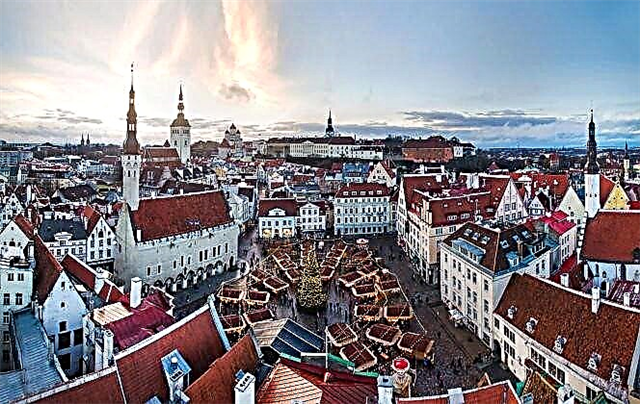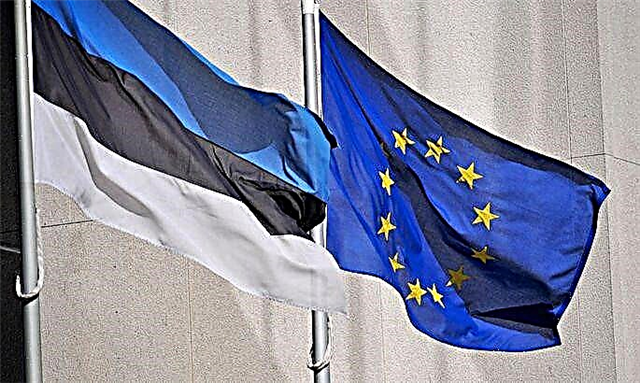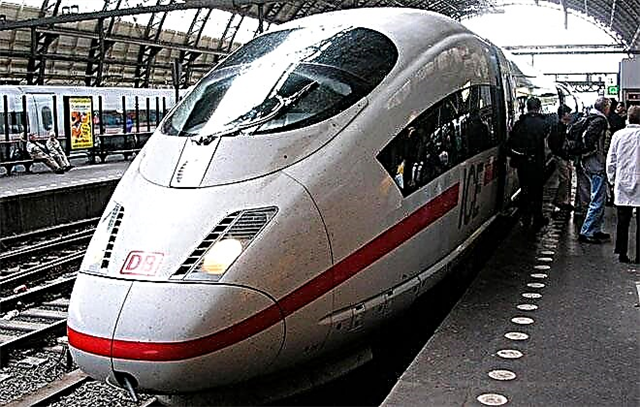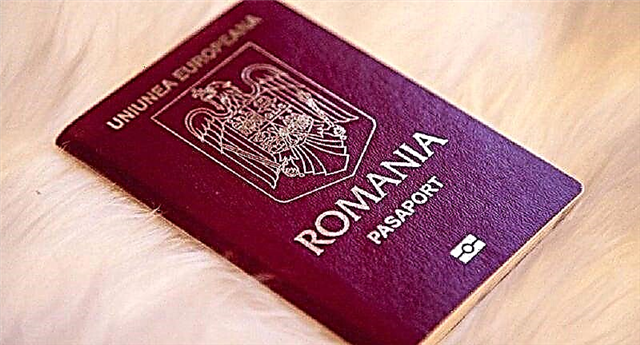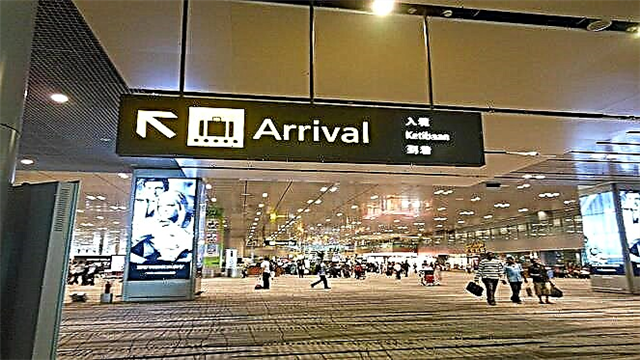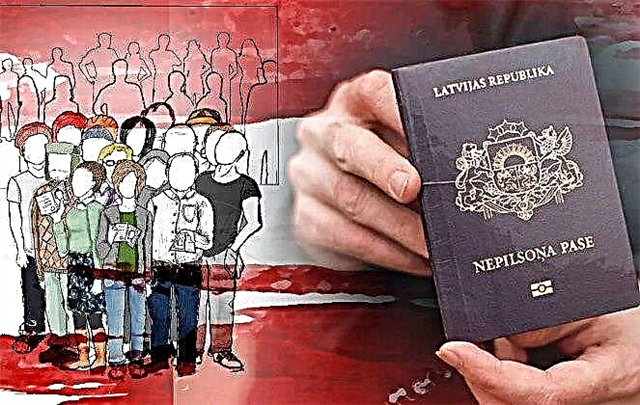Non-citizens of Latvia, as well as of Lithuania and Estonia, are a purely Baltic phenomenon. Its essence lies in the fact that the entire population of the state is divided into two categories - citizens and non-citizens. At the same time, the legal status of both is confirmed by the passport. The inscription "nepilsona" testifies to the belonging of its owner to non-citizens.

Who in Latvia is called "non-citizens"
According to the Office of Citizenship and Migration Affairs of the Republic of Latvia, as of January 1, 2021, there are 224 670 people in the country who are in the status of non-citizens (at the same time, a figure showing how many non-citizens there were in Latvia in the mid-90s of the last century , fluctuated in the region of 730-740 thousand people), which is approximately 10.7% of the total population. Another 5,105 non-citizens live today outside this state.
The law of April 12, 1995, which refers to the status of citizens of the former USSR, who do not belong to the citizenship of Latvia or any other state, classifies the following persons into this category:
- Until July 1, 1992, they were registered in the territory of Latvia.
- The last registered place of residence before the indicated date was also recorded in the territory of the Republic of Latvia.
- The court found that before the indicated date they and their children had been continuously residing for 10 years in this state.
At the end of the 20th century, the status of non-citizens was received mainly by persons who moved to the republic from the USSR in the period from 1940 to 1989, as well as their children who were born before July 1, 1992.
The ethnicity of non-citizens by the number of people was distributed as follows (in descending order):
- Russians;
- Latvians;
- Belarusians;
- Lithuanians;
- Ukrainians;
- Poles;
- gypsies;
- Jews.
And the age category of these persons is mainly 41-60 + years old.
The ideological and legal basis for dividing the country's inhabitants into two categories was the restoration of Latvian statehood in November 1991, which was a continuation of the one that was interrupted for 50 years. Accordingly, only those who stayed there until 1940 and their descendants received Latvian citizenship.
A law on this was adopted in October 1991. On its basis, slightly more than 700 thousand people received the status of “stateless persons in Latvia”.
The further fate of the "unrecognized" population was predetermined by history itself. After the collapse of the USSR (until 1995), the situation remained unclear. In October 1998, a law was passed that significantly expanded the list of rights of persons belonging to this category.
From the mid-90s of the last century to the present day, the law regulating the legal status of non-citizens has been amended seven times.
What are the rights of citizens and non-citizens
 The status of a non-citizen in Latvia differs from that in which stateless persons (stateless persons) stay in that the former have at their disposal a purple Latvian passport (for citizens it is red) and enjoy a narrower range of rights.
The status of a non-citizen in Latvia differs from that in which stateless persons (stateless persons) stay in that the former have at their disposal a purple Latvian passport (for citizens it is red) and enjoy a narrower range of rights.
At the same time, all holders of such documents are under the diplomatic protection of Latvia abroad, have the right to reside on the territory of the state without applying for a residence permit.
The Law on Non-Citizens establishes that persons of this category are neither foreigners, nor citizens, nor stateless: they belong to a group of residents of the country who are in a special status (this provision is spelled out in the laws of all the Baltic republics).
On the other hand, the UN does not classify non-citizens as persons falling under the Convention on the Legal Status of Stateless Persons, but takes them into account in its statistics of stateless persons.
As for the rights of residents of Latvia with a nepilsona passport, here you can find quite a few restrictions:
- the length of service that they have accumulated outside Latvia before 1990 is not taken into account when calculating the pension benefit;
- unemployment benefits to these persons, if part of the experience was received in another country, is paid in a smaller volume than citizens;
- persons with Latvian citizenship can visit 94 states in a visa-free regime, non-citizens - only 38;
- nepilson's passport does not give the right to study at the State Border Guard College, the Police Academy, the Fire Safety College;
- a citizen can lose his status only through a judicial procedure, a non-citizen - through an administrative procedure.
In addition, the considered category of residents of the country does not have the right to:
- carry firearms;
- serve in the army and law enforcement agencies;
- take part in elections and vote;
- work as officials, notaries, lawyers, pharmacists, registry office employees.
A number of restrictions can be found in the rights to purchase real estate, in the registration of privatization certificates.
Where can non-citizens of Latvia travel without a visa
After Latvia's accession to the European Union, Latvians were able to travel without a visa to all the member states. Persons who belong to the category of non-citizens began to use this privilege only in 2007.
Staying in Russia for most persons with purple Latvian passports is visa-free. In the table, we present the procedure for staying in a foreign territory for visa-free entry to some states for both categories of residents of the Republic of Latvia:
| Country | Rules for citizens | Rules for non-citizens |
|---|---|---|
| EU members | Without Borders | Up to 90 days every six months (in Croatia - up to 90 days a year, to UK and Ireland need a visa). |
| Liechtenstein | Up to 90 days a year | Need a visa |
| Russia | Need a visa | Up to three months every six months |
| Ukraine | Up to 90 days in half a year | Need a visa |
| Hong Kong | About 90 days every 6 months | Need a visa |
| Israel | Up to three months in every semester | Need a visa |
| Haiti, Guatemala, Costa Rica, Mexico | 90 days in half a year | Visa entry only |
To the countries of South America and Africa, non-citizens of Latvia will need a visa permit, while citizens can stay in some of these territories in a visa-free regime from 30 to 180 days.
Naturalization procedure
There is only one way to replace a non-citizen's Latvian passport with a full-fledged civil one - this is naturalization. Applications for this procedure have been accepted since 1995.
In 1999, an amendment was made to the law, which allowed the children of candidates for Latvian civil status to receive it without passing exams in the knowledge of the state language, history and legislation. But this applies only to minors who were born after August 1991.
Naturalization provides for:
- taking the oath of allegiance to the Republic of Latvia;
- payment of a fee;
- passing the exam.
Applicants can obtain citizenship in this way within one year, but most often it takes 7-8 months.
Difficulties in naturalization
 The main reason why the majority of applicants cannot legalize in Latvia is the presence of the so-called naturalization windows. In particular, we are talking about part 1 of Article 11 of the Law "On Civil Status", which provides for a number of restrictions, and about quotas, which significantly reduce the number of potential candidates.
The main reason why the majority of applicants cannot legalize in Latvia is the presence of the so-called naturalization windows. In particular, we are talking about part 1 of Article 11 of the Law "On Civil Status", which provides for a number of restrictions, and about quotas, which significantly reduce the number of potential candidates.
So, they cannot become a citizen of the Republic:
- Those who pose a threat to the public order and statehood of the country, the independence of its territories, the inviolability of the state. This includes candidates who opposed the independence of Latvia, after May 1990 spread the ideas of chauvinism, fascism, communism, national socialism, incited racial or national intolerance.A separate group is considered to be individuals who are associated with terrorist groups or money laundering.
- Those who carry out military service in other countries without the consent of the Latvian Cabinet of Ministers.
- Those who, after June 1940, chose Latvia as a place of residence after demobilization from the Armed Forces of the Soviet Union or the Russian Federation, if at the time of conscription into them the Latvian territory was not their place of permanent residence. This restriction does not apply to those who have been married to a Latvian citizen or former citizens of other Baltic republics for more than 10 years.
- Those who performed the functions of informants, agents or employees of the KGB of the USSR, as well as security services of other states, for which they were convicted in Latvia or in other countries.
Several years ago, the Naturalization Board conducted a study and found that the main reasons why non-citizens refuse to go the path to citizenship are:
- conviction that they are entitled to the status of a citizen by right - 34.2%;
- insufficient level of proficiency in the state language - 23.2%;
- the need to pass the exam on the history of the state - 20.5%;
- lower costs for issuing visas to a number of countries, including the Russian Federation - 20.2%;
- the amount of the fee that must be paid when granting citizenship is 20.22%.
The unwillingness to serve in the Latvian army, lack of motivation, age (older people find it difficult to go through this procedure, therefore they prefer to refuse it). But even in spite of this, about 1 thousand people annually pass into the category of citizens.
Outcomes
Non-citizens of the Republic of Latvia are a separate category of persons who cannot be classified as citizens, foreigners or stateless persons. It arose as a result of the country's restoration of its statehood in 1991.
The population with this status today is almost 11% of the country's population. Most of them live in large cities - Riga, Jurmala.
The law of the Republic of Latvia provides for a procedure for non-citizens to obtain a full-fledged civil status, but not all of them consider this necessary for themselves.



